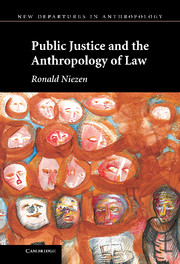Five - Civilizing a divided world
Published online by Cambridge University Press: 05 June 2012
Summary
Civilization in review
For all its well known historical complexity and moral corruption, the idea of civilization is another of the categories of culture to recently receive the imprimatur of authority from the institutions of global governance, not as noticeably or publicly, perhaps, as the indigenous peoples’ movement, but with enough political resonance to make it one of the newest of the transnational “isms.” That is to say, “civilization” has recently undergone a transition through UN meta-discourse to become “civilizationism,” with an activist agenda. In the manner of many UN initiatives, this has occurred in a fairly straightforward way, with an unobjectionable emphasis on the importance of dialogue, understanding and alliance between civilizations as foundations of peace and global cooperation toward prosperity, followed by meetings (initially to make arrangements for more meetings), solicitation of expert opinions, inauguration of an International Year, and all the other familiar routines of international institutional urgency.
In contrast to the fast-paced, institutionalized recognition of the concept of indigenous peoples, the UN’s conception of civilization faces some of the same difficulties in gaining traction with popular audiences as the efforts to garner support for long-term refugees discussed in Chapter 2, but for somewhat different reasons. It is difficult to make convincing arguments concerning the oppression and marginalization of civilizations. This is in part quite simply because civilizations are conceived as such grand, encompassing entities that it becomes difficult to demonstrate the connections between group belonging and tangible, communicable, sympathizable suffering. But in this chapter I want to argue that the problem goes further than this, that there are insurmountable contradictions built into the civilization concept, reflected in radically different popular ideas concerning their possibilities for dialogue and alliance. In one of its iterations the idea of civilization has a dissonant meaning in which the enduring idea of cultivated, purposeful human improvement – civilization as a universalist utopian vision – competes with the discredited residues of colonial hubris, in which civilization is a unique or uniquely superior possession of the colonizer. In another form, it more readily takes on a meaning associated with supra-state identity. Some – a limited few – can claim their own. In some publics, therefore, civilization is invested with pride, as the supra-state bearer of an illustrious history and with enduring potential for re-emergence into global prominence.
- Type
- Chapter
- Information
- Public Justice and the Anthropology of Law , pp. 137 - 178Publisher: Cambridge University PressPrint publication year: 2010

